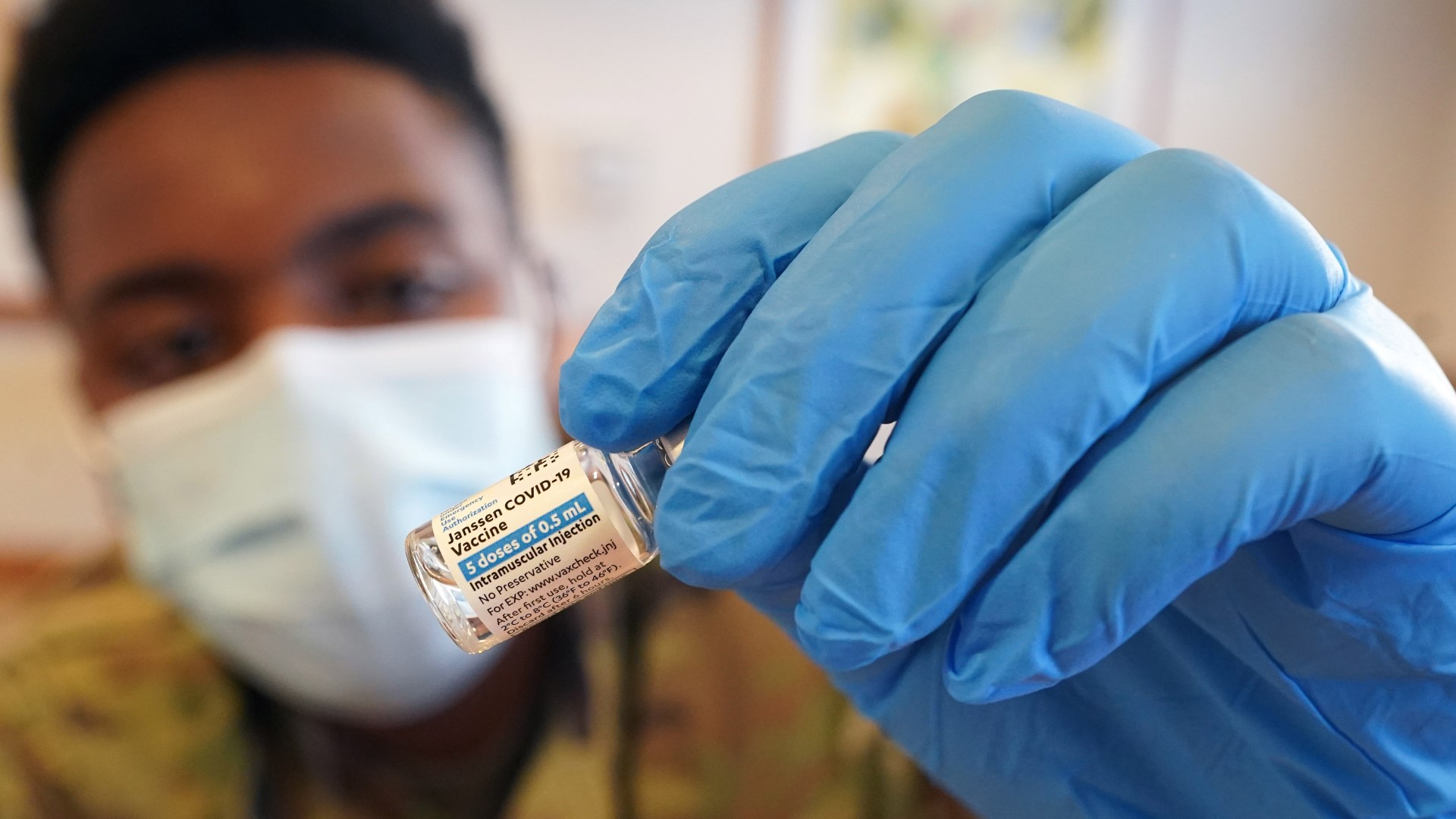SAINT LOUIS, Mo. — From marijuana, to beer, and even guns, municipalities across the country are now offering incentives to motivate people to get a COVID vaccine.
RELATED: Yes, guns, beer and trucks are being offered as incentives for people to get a COVID-19 vaccine
St. Louis County councilwoman Sholanda Webb is behind an idea to give $100 in gift cards to people who are on the fence about getting the shot. She said the cards could come from grocery stores, gas stations, or local businesses. Nearly $800,000 in federal funds from the American Recovery Plan Act would help fund the gift card rollout, meaning thousands of people could get the late incentive.
"I just want to encourage people to go and get vaccinated," said Webb. "This incentive program is for all of us that are still on the couch, still trying to make that decision."
Webb represents the north part of St. Louis County in District 4, and she said the numbers in her area are well below the county's 38% of fully vaccinated residents.
In theory, an incentive would work, say experts.
"Human beings at base level are going to be responsive to reinforcement," said Darrell Hudson, associate professor of public health at Washington University. "At the core, we all respond to reinforcements. I think in a sense it will work."
But Hudson said there are other factors at play, including access and lack of government trust. How much is $100 worth to people?
Experts say major cases like the Tuskegee experiment, an ethically abusive study conducted on Black men for 40 years by the U.S. Public Health Service and the Centers for Disease Control and Prevention, has influenced contemporary thinking.
"Even if people can't put their finger on the specific Tuskegee study or the Henrietta Lacks study — a lot of times people on the ground are not aware of those things," said Hudson. "But the legacies of that, however, resonate with communities for a long period of time. And if you're already dealing with historic marginalization, you've already dealt with structural issues where you could see the differences between your school and the schools that people in the suburbs go to. You can see the differences and the type of amenities that are available in your neighborhoods. People can see those things with their own two eyes--it doesn't take a Ph.D. or MBA to see those types of concerns."
"That distrust is real, and I cannot overlook it," said Webb. "The African American community has suffered at the hands of the government. What I want them to do is go and consult their physician. Get the facts. Be informed. And if this is incentive program will help them make this step to do those things, it's served its purpose."
Webb said even though her district is what sparked the idea for the incentive, she said it would be available for all county residents before the money runs out.
"I really think it is important for all of our community to make sure that we don't just protect ourselves, that we protect each other," she said.
Christopher Ave, a spokesperson with the county health department sent a statement to 5 On Your Side:
Our mission at the St. Louis County Department of Public Health is to improve the health of the entire community, especially our most vulnerable and disadvantaged residents. Our vaccination program is based on equity, so we have prioritized partnerships in our more vulnerable communities to bring vaccine into neighborhoods — specifically to places that residents already trust and feel comfortable in. We have made great strides in improving vaccination rates in those areas.
Still, with only about half of the County’s residents having at least begun the vaccination process, we have a long way to go. Vaccinations are safe and effective, and they have proven to be the best single tool to keep ourselves, our loved ones and our community safe. We remain committed to breaking down barriers to access, spreading scientific facts about vaccines and making vaccinations as convenient as we can for all in our County.

